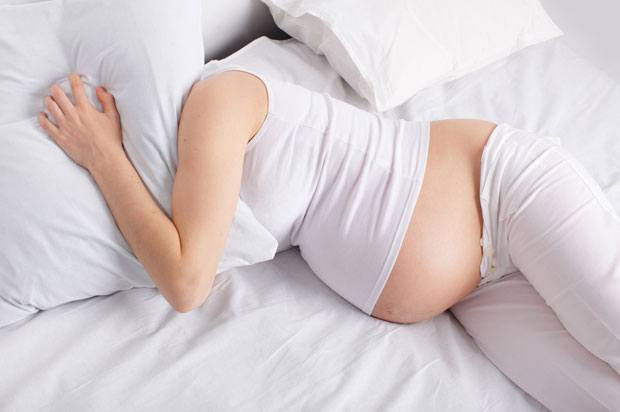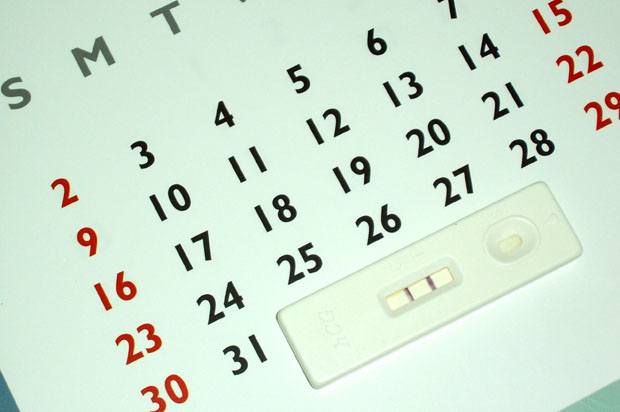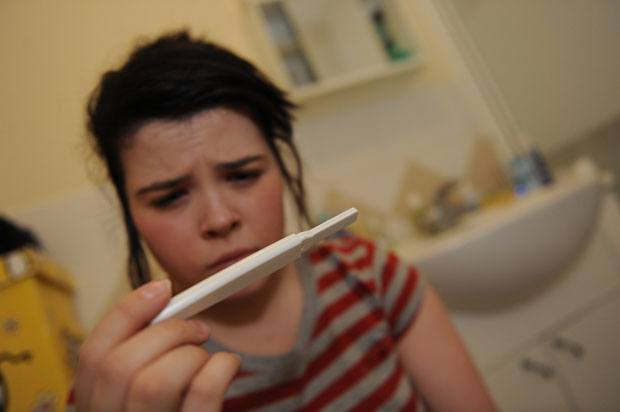I’m pregnant and didn’t know
It is possible to be pregnant and not know about it. The Mix looks at how to cope if you discover your pregnancy at a late stage.

Surprise pregnancy is more common than you think.
Surprise pregnancies happen more often than you might think. Research published in the British Medical Journal suggests that at least 1 in 475 women do not discover they are pregnant until 20 weeks’ gestation – that’s halfway through the pregnancy.
How could I be pregnant and not know?
Pregnancy can be overlooked for a number of reasons. Your periods may be absent or irregular, or you may continue to bleed as normal throughout the pregnancy. You may not have noticed that you’ve put on weight, or, if you were overweight at the time of conception, you may not have gained much weight in proportion to your overall size.
So what do you do if you find out you’re pregnant at 20 weeks – or later? Most importantly, you must do something – this is not a problem that’s going to disappear if you don’t think about it.
Explore your emotions
“I cried for a whole day when I found out,” says Eleanor Trussler, who found herself unexpectedly pregnant at 22 weeks, despite having a contraceptive coil fitted. Your emotions may range from disbelief to anger, fear, panic, resentment or excitement. This is all completely normal.
“It doesn’t make you a bad mother if you have conflicted feelings,” says Lara Honos-Webb, a psychologist who specialises in pregnancy and birth. “It may be useful to write your feelings down or speak them into a tape recorder to help order your thoughts.” Don’t be afraid to voice negative emotions – your stress levels cannot hurt the foetus and the fact that you feel confused now doesn’t mean that you won’t be able to bond with the baby when it’s born.
Tell a friend
You will need a strong support network of friends, family and professionals around you during this time. You may want to speak to someone other than your partner (if you have one) at first, so that you can be honest about your emotions without needing to worry about your partner’s response.
Tell the father
The father will probably be as shocked and scared as you were when you found out about the pregnancy. Don’t take his initial reaction to heart or assume that it signals a lack of support. “The mother will probably have to act as an ’emotion coach,’ helping him express what he is feeling,” says Honos-Webb. Allow him to talk through his feelings and give him time to discover how he really feels once the initial shock is over.
Tell a doctor
Your GP (doctor) should be your next port of call. They can arrange an appointment with a midwife who will manage your care through the rest of your pregnancy.
There are still options left for you to explore and it may be possible to arrange a late termination of the pregnancy.
Don’t be afraid to tell the doctor or midwife if you have been drinking, smoking or doing drugs before you knew you were pregnant. They are not there to judge but to ensure you and your baby have the best care possible.
Scans
It is unlikely you’ll be able to have any diagnostic scans to determine abnormalities such as Down’s Syndrome or spina bifida, as these all take place earlier in the pregnancy, between 11-14 weeks. A fetal anomaly scan is carried out between 18-22 weeks, so you may be able to have this if you discover the pregnancy in time.
Birth plans
Although the pregnancy may not be planned, the birth can be. Do some research and discuss with your midwife the kind of birth you hope to have. The more research you can do at this stage, the better prepared you will be for labour.
Housing
Try not to worry about housing – it will be many months after the baby is born before it needs a separate room or even a separate space. A cot and a place to store baby clothes and supplies are all you really need.
Money
You may be keeping your baby or you may choose to give it up for adoption.
If you’re keeping the child, as soon as you discover you’re pregnant start cutting down on non-essential purchases such as expensive coffees or takeaway food and put the money aside for the baby instead.
Find out about money you may be entitled to, such as a Sure Start Maternity Grant or Statutory Maternity Pay after your baby is born.
After birth
Although your situation is tricky, try not to panic. “No matter how awful you feel when you find out you’re pregnant,” says Eleanor, whose baby has now been born. “Now he’s here I can’t imagine not having him. Even though it can be difficult, I don’t think you ever really regret having a child.”
Photo of baby bump by Shutterstock.
Next Steps
- Chat about this subject on our Discussion Boards.
- Need help but confused where to go locally? Download our StepFinder iPhone app to find local support services quickly.
By Anne-Marie Payne
Updated on 02-Dec-2015
No featured article














